Fidel Castro – Video Biography
Video Biography of Cuban Leader Fidel Castro

Fidel Castro or Fidel Alejandro Castro Ruz, was born on August 13, 1926, in the eastern Oriente province of Cuba, in a town called Birán. Castro was born into a wealthy family as his father, Ángel Castro y Argiz, an immigrant from North-West of Spain was a large sugar plantation owner. Fidel’s mother, Lina Ruz Gonzalez, was a maid to, Maria Luisa Argota, Angel’s first wife in which he split from her when Castro was 15 and married Lina, Castro’s mother two-years-later.
Castro was the third of six children with four sisters, Antelita, Juanita, Emma, and Augustina and two brothers, Raul and Ramon. Castro was educated in private Jesuit boarding schools and was financially well compared to the majority of the country that could not afford basic needs including hospital care and education.
He graduated in 1945 and enrolled into law school at the University of Havana and became embroiled in the political unrest within the country. The political atmosphere mainly involved Cuban nationalists, anti-imperialist, and socialists and also people who were against the influence of the United States in Cuba.
Castro’s passion for social justice had increased in the next few years at University, he even travelled to the Dominican Republic to join a coup against the countries dictator at the time, Rafael Trujillo. The coup was unsuccessful and failed before it even started. Rafael Trujillo was assassinated in 1961, with rumors that the CIA was involved.
After the failed coup in the Dominican Republic Castro returned to the University of Havana where he joined the Partido Ortodoxo, formed by Eduardo Chibás, a charismatic leader who promised social justice, honest government, and political freedom and was able to gain many followers.
Castro married Mirta Diaz Balart the daughter of a wealthy family in 1948, which opened the doors to political connections. Castro carried on his political ambitions and was a candidate for a seat in the Cuban parliament. However these ambitions were stopped by a coup which was led by General Fulgencio Batista who successfully overthrew the government. Castro at this point had very little income and no legitimate political platform.
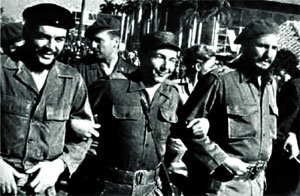 Batista was able to cement his relations with the military and Cuba’s economic elite and also got the government recognized by the United States. Castro and members of the Ortodoxo party organized a plan to overthrow Batista. 150 supporters of the Ortodoxo attacked the Moncada military barracks on 26, July, 1953 but failed. Castro was captured by the military and was sentenced to 15 years in prison. The incident had an unexpected effect on Cuban’s as groups and parties opposing the government had gained more courage and Castro had become very popular in the country.
Batista was able to cement his relations with the military and Cuba’s economic elite and also got the government recognized by the United States. Castro and members of the Ortodoxo party organized a plan to overthrow Batista. 150 supporters of the Ortodoxo attacked the Moncada military barracks on 26, July, 1953 but failed. Castro was captured by the military and was sentenced to 15 years in prison. The incident had an unexpected effect on Cuban’s as groups and parties opposing the government had gained more courage and Castro had become very popular in the country.
No one really knows why Castro and his brother Raul who also was in the attack did not get executed but some suggest that one of the officers had known Castro from University days and treated him in good way while his men were executed. Castro was released from prison after serving just two years under a general amnesty from the Batista regime who was under pressure both politically and from the Cuban’s. Castro went to Mexico to re-group and gain more strength to his cause of overthrowing the Batista regime.
While in Mexico Castro had met Ernesto “Che” Guevara, a charismatic revolutionary with very similar thoughts to one-another. “Che” was a greatly influential person in Castro’s political beliefs who believed only a violent revolution can overthrow the government. With the protection of the Sierra Maestra mountains, Castro’s men or better known as the 26th of July Movement went to guerrilla war against the Batista government. Groups were found in virtually every major city that backed the Castro warfare.
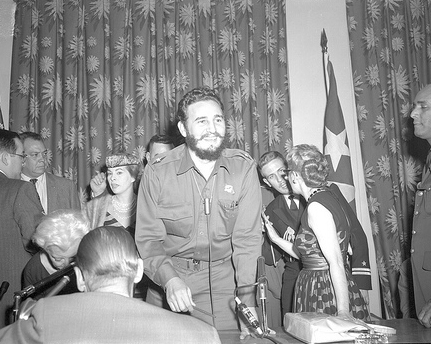 A series of blows to the Batista regime forced the dictator to launch an operation called “The Offensive” Castro’s men who were heavily outnumbered gave some serious blows to the Batista Regime. From one part of the nation to another the Castro onslaught with the help of Che Guevara, Raul Castro, Huber Matos and many more. The most influential win of the Castro regime was the taking of Santa Clara, the provincial capital, in just one day on 31 December 1958.
A series of blows to the Batista regime forced the dictator to launch an operation called “The Offensive” Castro’s men who were heavily outnumbered gave some serious blows to the Batista Regime. From one part of the nation to another the Castro onslaught with the help of Che Guevara, Raul Castro, Huber Matos and many more. The most influential win of the Castro regime was the taking of Santa Clara, the provincial capital, in just one day on 31 December 1958.
The blow of losing the Battle of Santa Clara and expecting betrayal from his own men as Castro’s army advanced, Batista escaped to the Dominican Republic in the early hours of 1st January, 1959 on a plain with an estimated $300 million dollars which he amassed through payoff and bribery. At just 31-year-old Castro successfully masterminded and led the guerrilla campaign that over through a military dictator.
Castro and his army went into Havana in a victorious fashion on 8th January, 1959, with crowds pouring into the streets and automobile horns blowing from the city. Castro was put into the role of Commander-in-Chief of the Armed Forces in Cuba, and famiously said “Power does not interest me, and I will not take it”. Castro immediately called for a general strike to protest to Piedra’s government and demanded Dr. Urrutia, former judge of the Urgency Court of Santiago de Cuba, to be put into the role of the provisional President, a move which was backed by the The Cane Planters Association of Cuba.
Castro, became Prime Minister of Cuba with no real opposition left as he attacked liberals and democrats which resulted in the leaders of both parties to resign. The president Manuel Urrutia Lleó urged for an election but Castro had apposed this notion and famously said “Revolution first, elections later”.
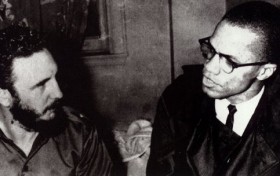 The chief of intelligence in Cuba, Ramiro Valdés almost immediately contacted the KGB in Mexico City which resulted in the USSR to send over one hundred advisors to Cuba to help in the defense of the revolution. Ties were strengthened further between the two countries when Cuba signed an agreement to buy oil from the USSR. However the Agreement with the USSR was the climax of the Cuba, US relations as the refineries owned by the United States refused to process the oil, Cuban officials and army forcefully took over which ended all diplomatic ties between the two countries. Eisenhower, the president of the United states at the time reduced Cuba’s sugar import by 7 M tons which Cuba responded by nationalizing almost $1 billion dollars worth of U.S. property and businesses. Both the health care and education system was nationalized, along with the industry. This led to the government to redistribute property, collectivize agriculture and create policies that would benefit the poor. The new laws had been a major his with the majority of Cuba as there were so many poor but the laws also alienated the rich and middle class people. Approximately 1 million Cuban’s immigrated to the U.S including some of Castro’s own family.
The chief of intelligence in Cuba, Ramiro Valdés almost immediately contacted the KGB in Mexico City which resulted in the USSR to send over one hundred advisors to Cuba to help in the defense of the revolution. Ties were strengthened further between the two countries when Cuba signed an agreement to buy oil from the USSR. However the Agreement with the USSR was the climax of the Cuba, US relations as the refineries owned by the United States refused to process the oil, Cuban officials and army forcefully took over which ended all diplomatic ties between the two countries. Eisenhower, the president of the United states at the time reduced Cuba’s sugar import by 7 M tons which Cuba responded by nationalizing almost $1 billion dollars worth of U.S. property and businesses. Both the health care and education system was nationalized, along with the industry. This led to the government to redistribute property, collectivize agriculture and create policies that would benefit the poor. The new laws had been a major his with the majority of Cuba as there were so many poor but the laws also alienated the rich and middle class people. Approximately 1 million Cuban’s immigrated to the U.S including some of Castro’s own family.
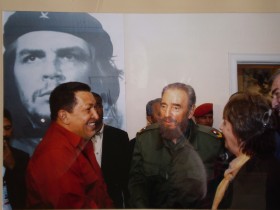 Castro famously declared Cuba a socialist state and abolished multiparty elections on May 1, 1961. The Cuban leader said in a speech to hundreds-of-thousands of Cubans “The revolution has no time for elections. There is no more democratic government in Latin America than the revolutionary government. If Mr. Kennedy does not like Socialism, we do not like imperialism. We do not like capitalism”
Castro famously declared Cuba a socialist state and abolished multiparty elections on May 1, 1961. The Cuban leader said in a speech to hundreds-of-thousands of Cubans “The revolution has no time for elections. There is no more democratic government in Latin America than the revolutionary government. If Mr. Kennedy does not like Socialism, we do not like imperialism. We do not like capitalism”
Tensions between the US and Cuba was at its worst in the 1962 so called “Cuban missile Crisis” which almost left the USSR and the U.S. engage in Nuclear war fear. The USSR sent missiles to Cuba to scare the U.S from trying to enter the country, but the act was seen as a threat to U.S. security by polititians. The USSR defended it self by saying it was a retaliation of the U.S missiles which were deployed into Turkey. The aggressive word exchange between the three countries involved when Khrushchev the Premier of the Soviet Union agreed to remove the missiles from Cuba only if the missiles in Turkey and Italy are removed and if Cuba would not be invaded by the U.S.
There has been an estimated 638 assasination attempts on the life of Fidel Castro according to Fabian Escalante, the man who’s job was to protect the life of the Cuban leader. According to Escalante the assasination attempts were all planned by the U.S. and the CIA. An exploding cigar, a mafia style shooting, fungal-infected scuba-diving suit, women, poison pills and many more. According to intel on Castro, no one really knows how many siblings or wifes he has in case his enemies try to harm them. The exact number of assasination attempts on Castro’s life will probably never be known but it is for sure that the task has failed greatly.
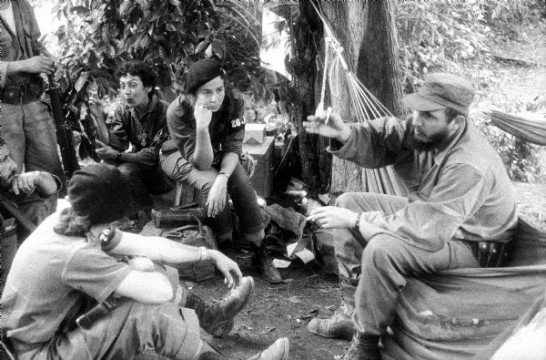 Cuba came close to bankrubtsy in the 90’s due to the colapse of the Soviet Union as the country had depended greatly to the super power at the time. The Latin American country had major problems with gas, water, power, and food shortages. However Cuba came went through this rough period or better known as the “Special Period” by legalising US dollar, turning to tourism and allowing financial help from Cubans living in the United States. These small supplies helped the country greatly and stopped the country and government from near colapse. Castro also agreed on exchanhing man power for basic needs for his country such as sending Cuban doctors to Venezuela in exchange for oil.
Cuba came close to bankrubtsy in the 90’s due to the colapse of the Soviet Union as the country had depended greatly to the super power at the time. The Latin American country had major problems with gas, water, power, and food shortages. However Cuba came went through this rough period or better known as the “Special Period” by legalising US dollar, turning to tourism and allowing financial help from Cubans living in the United States. These small supplies helped the country greatly and stopped the country and government from near colapse. Castro also agreed on exchanhing man power for basic needs for his country such as sending Cuban doctors to Venezuela in exchange for oil.
There have been many speculations between the year of 1998 to 2005 regarding the health of Fidel Castro. Many of the specuations were said to be only rumors but the Cuban leader had come to the age of 80 and perhaps leading a country was getting to be very difficult. Fidel Castro passed all his duties over to his brother Raúl Castro. Even at the time of the passing of power which was supposed to be temporary, there were rumors that Fidel Castro had terminal pancreatic cancer and was refusing treatment, which was later denied by Cuban officials.
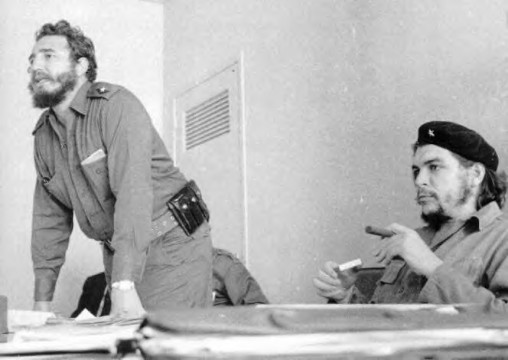 Fidel Castro retired from governmental duties in 2008 on a letter by the former Cuban leader posted on the official Communist Party newspaper, Granma. A section of the letter read, “I’m really happy to reach 80. I never expected it, not least having a neighbor, the greatest power in the world, trying to kill me every day,
Fidel Castro retired from governmental duties in 2008 on a letter by the former Cuban leader posted on the official Communist Party newspaper, Granma. A section of the letter read, “I’m really happy to reach 80. I never expected it, not least having a neighbor, the greatest power in the world, trying to kill me every day,
“It would betray my conscience to take up a responsibility that requires mobility and total devotion, that I am not in a physical condition to offer”.
Raul Castro was chosen as the Cuban president, unanimously by the National Assembly of People’s Power on 24, February, 2008. Raul publically said that though his brother Castro is not in power, he will be consulted on important matters involving the government.
[media id=169 width=610 height=340] [adrotate group=”10″]
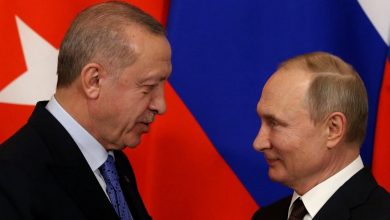
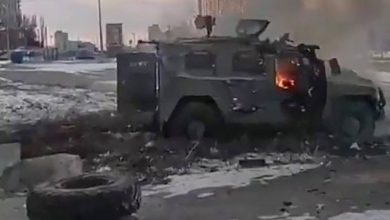
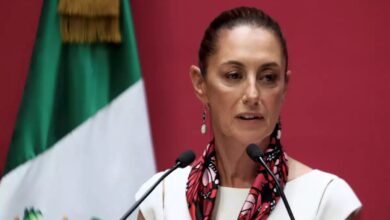
why is Agustinan C
astro not on tne net? Seems as if she disappeared.
why is agustina castro not on the net? seems as if she disappeared.